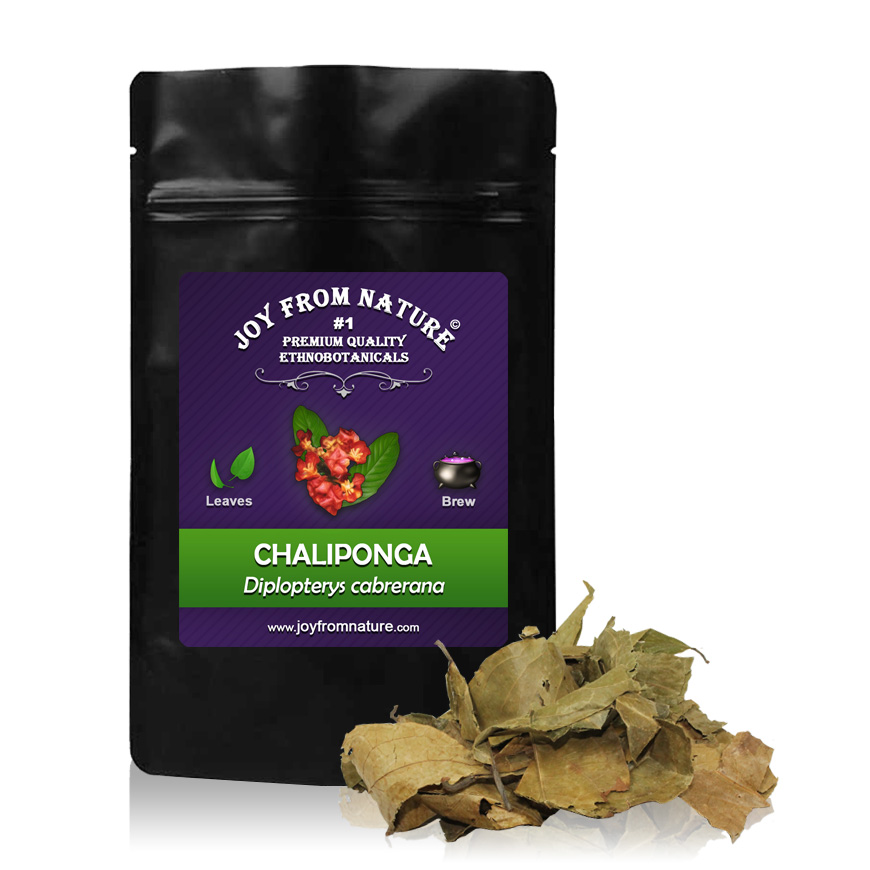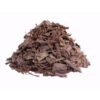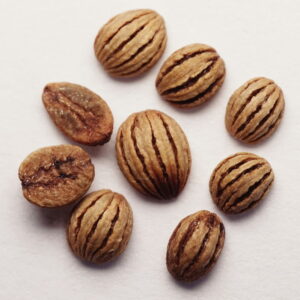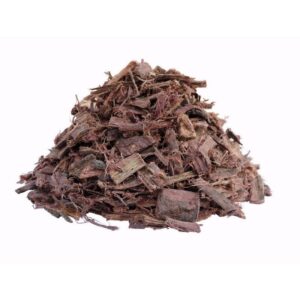Information: Also known as chagropanga, this plant was called Banisteria rusbyana when it was discovered. Best known for its shamanistic, healing use as an additive in traditional ayahuasca in the Amazon foothills, D. cabrerana contains a high amount of psychedelic tryptamines.
Effect: Nowadays D. cabrerana is still used primarily to make ayahuasca, which is a psychedelic infusion. The effects can best be described as a physical and mental purge, combined with a 4 hour connection with the otherwise imperceptible. The intensity depends on many factors, so many drinkers have to build up some experience and have weak effects in the beginning. When the effects are weak, most drinkers experience something similar to a low dose of psilocybin mushrooms or LSD, combined with stomach cramps in the first 2 hours. In the case of strong effects, most people experience a drastic change in the interpretation of reality or even some kind of transport of all the senses to another dimension. Ayahuasca is known for its strong visions of the bright side and the dark side. The visions tell stories about the drinker and everything else in the universe. Many people don’t get visions, however, and experience ayahuasca through the other senses. The purging effects can be very strong. Many people get diarrhea and have to vomit.
Use: Don’t underestimate how overwhelming the experience can be and start with a low dose if you’re new to ayahuasca. Dosing for this plant is still experimental, so beginners are referred to Psychotria viridis. As to D. cabrerana, in most recipes 5 grams is a low dose, 10 a normal dose and 15 a high dose. If you are not yet familiar with making ayahuasca, you should know that hardly anyone who makes it for the first time is successful. For most people, making good ayahuasca is a result of trial and error and several years of practice. You should read about making ayahuasca in books and on the internet (check the links below) and decide on a recipe. D. cabrerana is usually made into a hot water infusion. Depending on the brewer’s method, this infusion takes between several hours up to a day to make. Sometimes B. caapi or another plant goes into the same pan, sometimes it has its own pan. Typical boiling times are between 4 and 12 hours. Some people make two or more infusions from the same plant material and add them all together. Sometimes acidifiers like vinegar or lemonjuice are added to speed up the extraction. In any case, the resulting liquid is boiled down to a small, drinkable size and drunk on an empty stomach. A small number of people makes an extract from this plant. This extract is typically used as an incense, and it induces a 15 minute psychedelic experience, borrowing elements from the ayahuasca experience, most notably the drastic change in the interpretation of reality or transport of all the senses to another dimension.
Ingredients: the plant contains 0.17 to 1.75% N,N-DMT, along with some 5-MeO-DMT and 5-HO-DMT (bufotenine)
Warning: When making ayahuasca, be aware of the fact that you’ll be using D. cabrerana in conjunction with an MAO-inhibiting plant, like Banisteriopsis caapi. MAO-inhibitors can be very dangerous when combined with certain foods or other psychoactives that are totally harmless when taken by themselves. Don’t take ayahuasca by yourself and please take notice of the historical fact that ayahuasca has been used safely in a ritual setting under guidance of trained shamans.
Important: check the disclaimer





Reviews
There are no reviews yet.